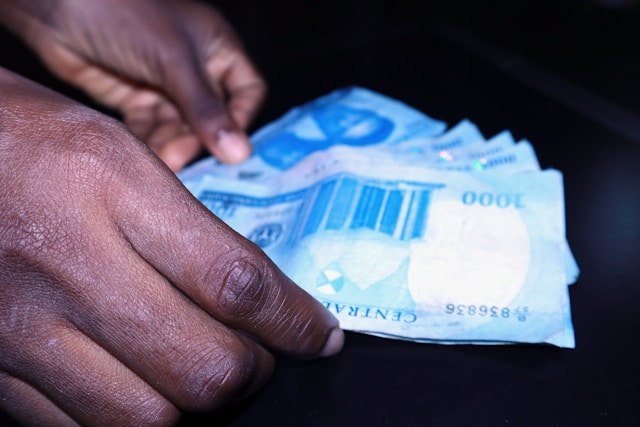If you’ve ever wondered how billions of U.S. dollars move into Nigeria outside the banking system, the answer lies in the informal or “parallel” exchange market. Built on necessity and opportunity, this system has facilitated money transfers between the U.S. and Nigeria for decades. While it offers better rates and faster service than official banks, it also carries serious legal risks. U.S. prosecutors are increasingly cracking down on those who, knowingly or unknowingly, become “money mules” in these networks, often resulting in frozen accounts, asset forfeiture, money laundering charges, and even prison sentences.
What Is the Parallel USD–Naira Market?
The parallel market is a trust-based network that allows Nigerians to send money between the U.S. and Nigeria outside formal banking channels.
Here’s a typical transaction:
- A Nigerian in Nigeria wants to buy a used car in Texas for $10,000, but has no U.S. bank account.
- A Nigerian in America needs ₦15 million to buy property in Lagos, but has no Nigerian account.
- They agree on a rate (say, ₦1,500/$1) and settle: the Nigerian in Nigeria pays the seller in Naira, while the Nigerian in America pays the U.S. auto auction in dollars.
No wire transfers. No SWIFT codes. Just trust, relationships, and parallel bookkeeping. This “mirror” system functions much like hawala, the centuries-old Middle Eastern remittance network.
The Scale of the Market
Remittances to Nigeria are massive, rising from $2.3 billion in 2004 to $17.9 billion in 2007 and peaking at $35 billion in 2016, with a large share flowing through informal channels. Exchange rate disparities fuel this demand: while the official NAFEX rate ranged from about ₦767 to ₦1,653 per USD in 2024, the parallel market rate was often 40%–60% higher, reaching ₦1,685 per USD in September 2024. For families and businesses in Nigeria, the parallel market offers more naira per dollar, while those abroad can send money without bureaucratic hurdles. Even the World Bank has recognized that Nigeria’s FX shortages and regulatory bottlenecks sustain this parallel system.
Why It Thrives
Many Nigerians turn to informal FX channels because they offer better value, with higher naira returns per dollar, as well as speed and convenience since there are no FX approvals or lengthy banking delays. Cash also plays a role, as many people prefer physical settlements over formal bank transfers. At the same time, Nigeria’s restrictive FX policies unintentionally fuel the parallel market, creating policy gaps that sustain its growth. But there is a darker side: the very same system that supports hardworking families is also exploited by criminals, who use these informal channels to move illicit funds, often by recruiting money mules in the U.S.
Who Are Money Mules?
A money mule is anyone who transfers funds on behalf of someone else, often under false pretenses. Some know what they’re doing. Many don’t. For example, a U.S.-based Nigerian agrees to act as a “payment clerk.” He receives checks into his personal bank account, pays vendors in the U.S. and Nigeria using parallel market networks, and becomes part of an unlicensed money transmitting business.
DOJ Crackdowns: Numbers Don’t Lie
The U.S. Department of Justice (DOJ) has made cracking down on parallel-style mule networks a top priority, taking significant enforcement actions year after year. In 2020, authorities acted against 2,300 mules worldwide; in 2021, they carried out 4,750 actions in just 10 weeks; and by 2023, more than 4,000 additional actions brought the five-year total to over 12,000. These cases highlight that even unknowing participants can face severe consequences. For example, a Nigerian national in Cleveland was sentenced to two and a half years in prison and ordered to repay $438,604.89, while in Oregon, U.S. accounts connected to an informal Naira-USD exchange processed nearly $1 million before being seized.
Legal Risks for Mules
Becoming a money mule, even without realizing it, can carry devastating consequences. U.S. banks may freeze accounts linked to suspicious activity, while assets such as cars, homes, and cash tied to illegal transfers can be seized through forfeiture. Participants also risk criminal prosecution on charges like money laundering, wire fraud, or operating an unlicensed money transmitting business. On top of this, courts frequently impose restitution orders that can require repayment in the hundreds of thousands of dollars.
Proceed With Caution
The USD–Naira parallel market is an ingenious system born of necessity. It serves millions of Nigerians seeking value, speed, and simplicity in cross-border transactions. But it is also a legal minefield, one that the U.S. DOJ is aggressively policing.
As prosecutors target not just fraudsters but also unwitting middlemen, anyone using or touching the informal market should understand the risks. For businesses, investors, and individuals in the diaspora, compliance isn’t optional, it’s the only safe path forward.
Next Step: If you or someone you know has been contacted to act as a “payment clerk,” has had funds frozen by a U.S. bank, or is facing asset seizure tied to parallel market transfers, seek legal counsel immediately.



